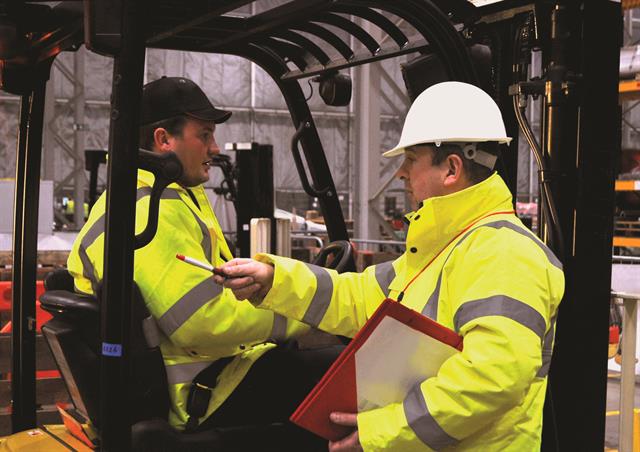 Stuart Taylor |
Stuart Taylor is Managing Director of Mentor FLT Training Limited, the UK's leading provider of training and associated services for all types of materials handling equipment and workplace transport.
For many managers, staff training means striking a difficult balance. That's because when your forklift operators are in training, they aren't working, but without proper training, they aren't working at their best. For the sake of staff safety, productivity and your budget (not to mention legal compliance), it's important to ensure your team is spending the right amount of time on training.
But, how can you be sure that you're following best practice, getting the best value and making the best use of everyone's time?
Well, once again we can turn to the HSE for guidance.
L117 - the Approved Code of Practice for Rider Operated Lift Trucks - focuses on operator training and safe use and offers simple, straightforward advice on the subject.
The three elements of trainingBefore we can discuss course lengths, it's important to note that there are three elements of forklift training which must be satisfied by employers before an operator is deemed ready to work. The ACOP outlines these as:
·
Basic training: Foundation-level training necessary to operate the type of forklift and any attachments that will be used. Delivered 'off the job' by a qualified in-house instructor or an external provider (look for one who trains to an accredited standard).
·
Specific job training: Delivered 'off the job' by the employer and will be tailored to the employer's needs. Gives operators a working knowledge and understanding of the equipment that they will use day-to-day and how it should be used in the workplace.
·
Familiarisation training: Carried out 'on the job' under close supervision. Allows the operator to put into place what has been learnt, in normal conditions.
 Basic training will typically last between three and five days |
Course durationsWhen determining suitable course lengths for operator training, it's key that we're specific about the type of training we mean to avoid confusion. The following guidelines refer to basic training; any job specific and familiarisation training will be an additional time investment (but a necessary one to ensure you meet the legal requirements set out in L117).
A course of basic training will typically last between three and five days, dependent on factors such as equipment type, experience level and delegate numbers. The specific guidance is that the course should last as long as it takes for delegates to meet the requirements of L117's Appendix 1 and 2: basic training objectives and tests of operator skills. Therefore, more experienced operators may, understandably, need less training than those with little or no experience.
So that's basic training covered, but if you stop here, you'll lose out on significant boosts to efficiency gained during the remaining two elements of training, and your new operators may not yet be ready to work safely alongside their experienced colleagues, who'll be going at their usual pace. This could mean productivity is slowed, disrupted or even halted completely should an accident occur. So be sure to allow additional time for job-specific and familiarisation training.
Another requirement to consider is refresher courses, because while new operators need training, it's vital you don't presume that experience guarantees competence. Complacent attitudes can soon build up and bad habits develop, meaning even the most experienced operators must be reminded of best practice periodically.
Remember, training is an ongoing process so periodic refresher training, typically once every three to five years is best practice.
Comparing course lengthsWhen comparing providers, avoid making a beeline for the shortest or cheapest courses to free up your operators or your budget. Weigh up both quality and quantity and make sure your provider ticks all the boxes.
Finding the right training provider can go a long way to alleviating headaches for managers. Don't talk yourself into a cheaper provider by telling yourself: "It's basically all the same." In our experience, it certainly isn't. When comparing quotes, make sure you're comparing like-for-like and not accepting any corner-cutting in exchange for price-cutting. A good start is to find a provider who offers training to an accredited standard, under one of the bodies that make up the Accrediting Bodies Association (ABA).
Remember, if you're ever unsure of your training requirements, L117 is always a good place to start.